Advisory Councils
Toronto Public Library advisory councils provide advice and guidance on library initiatives in their respective areas. Council membership criteria is defined in the terms of reference for each advisory council and members may represent service providers, community representatives or industry experts.
Indigenous Advisory Council
The Indigenous Advisory Council (IAC) is made up of members from different Indigenous communities and of representatives from Indigenous service providers in Toronto. The IAC meets quarterly and provides feedback and guidance on the direction of Indigenous initiatives at Toronto Public Library, including the Land Acknowledgement Statement, Elders in Residence program, Read Indigenous campaign.
The establishment of a permanent Indigenous Advisory Council at Toronto Public Library is part of our response to the Truth and Reconciliation Commission of Canada’s 94 Calls to Action, as well as part of our Strategies for Indigenous Initiatives (PDF), created in 2017.
Community Members
-
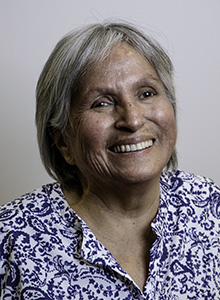
Jackie Esquimaux-Hamlin
I am an Anishnawbekwe from Aundek Omni Kaning First Nation on the Manitoulin Island. I have participated in the Indigenous community of Toronto for almost fifty years. My primary work in the community began as an Early Childhood Educator at Gizhaadaawgamik. This childcare centre was the first in Canada in an urban setting that focused on Indigenous language, culture and ceremony. Following that, after almost twenty years of service as the Resource Centre Cooordinator at First Nations House at the University of Toronto, I retired.
-

Erika Iserhoff
Erika Annie Iserhoff (Mushkego/Eeyou Cree) is a member of Constance Lake First Nation (Treaty 9). She is currently the Indigenous Arts Program Officer and was the former Indigenous Culture Fund Grants Facilitator at the Ontario Arts Council.
For the last 20 years, Erika has worked as a multi-disciplinary artist and a costume designer, arts producer, and artistic director, previously at Native Women in the Arts (“NWIA”).
In more recent years she has focused on increasing access to, and in providing critical granting initiatives from an Indigenous perspective, to Indigenous arts and culture initiatives and organizations.
She holds a Bachelor of Design with a major in Material Arts and Design from OCAD University and has a diploma in Fashion Design from George Brown College. She received the 2017 Emerging Indigenous Artist Award from the Ontario Arts Council and is a Dora Mavor Moore Award recipient for Outstanding Costume Design in 2009.
She is dedicated, and has worked extensively, to support cultural revitalization and healing initiatives in various Indigenous communities in Ontario and Quebec.”
-

Dawn Maracle
With twenty-five years' of award-winning experience working with and for Indigenous communities, organizations, initiatives and campaigns, Dawn has multiple Education and Native Studies degrees. She has experience in Indigenous education & training, health/medicine/tobacco, governance, women and the arts.
She has sat as an esteemed member of the UNESCO arts and education roundtable; has fulfilled roles such as the National Director of Professional Development for the National Centre for First Nations Governance, and the National Chair for the INAC - Assembly of First Nations Working Group on Post Secondary Education. In addition, she served as Senior Advisor/Planner for the Aboriginal Cancer Unit at Cancer Care Ontario, where she wrote the first Pilot Indigenous Patient Navigator role for the Thunder Bay Regional Cancer Centre positions which now exist in LHINs throughout Ontario.
She currently works as a Facilitator, Coordinator and Master Trainer for the KAIROS Blanket Exercise for KAIROS Canada. As well, Dawn is the Executive Director of SKYroots Indigenous Education and Training Institute. (SKYroots IETI)
-
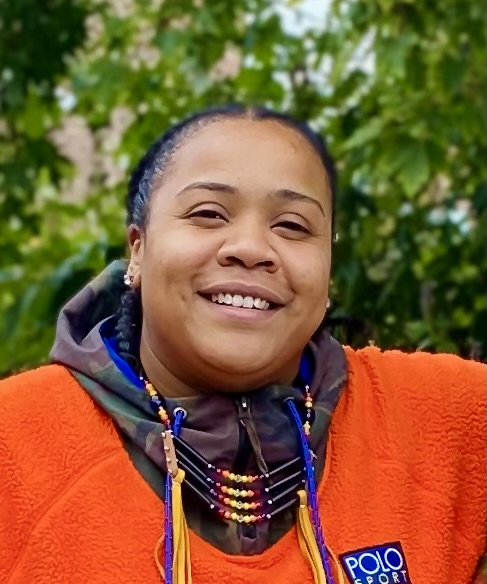
Shar-Dey Phipps-Walker
Shar-Dey Phipps-Walker is Afro-Indigenous, a proud member of Lac Seul First Nation, and currently resides in Toronto. Throughout her life, she has actively engaged in community building, advocacy, and education, striving to bridge the gap between Indigenous knowledge and mainstream society. With a background rooted in social justice, she approaches her work with an anti-oppressive and critical lens. Her focus revolves around food justice and sovereignty movements, seeking to actively engage with these movements in impactful ways. She is particularly passionate about supporting grassroots initiatives that empower BIPOC communities, emphasizing the importance of culture and fostering a connection to the land. She firmly believes in the transformative power of literature, storytelling and information tools for reconciliation, cultural understanding, and empowerment.”
Service Provider Representatives
-
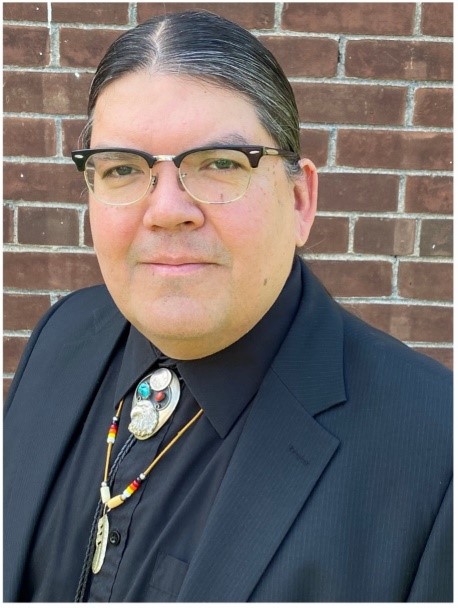
Fred Martin
Fred Martin is Ojibway with ties to the M’Chigeeng First Nations of Manitoulin Island, Ontario on his Mother’s side, and Mi'kmaq with membership to the Qalipu First Nations of the Port aux Port Peninsula, Newfoundland and Labrador on his Father’s side. He is a Communications Specialist and Traditional Indigenous Knowledge Consultant who is dedicated to the pursuit of traditional ceremonies, storytelling and knowledge, as well as understanding the historical record of North American Indigenous peoples from pre-contact to the present day.
His current role at the City of Toronto, as Senior Project Manager (Waterfront) with the Indigenous Affairs Office (IAO) will help guide reconciliation efforts by establishing respectful and ongoing relationships with many treaty and territorial rights holders, including urban Indigenous groups. Through departments like the IAO and the Waterfront Secretariat he will propel revitalization along the Waterfront through initiatives focused on affordable, supportive housing and shelter initiatives; education, employment business programs; place making, place naming; land return and stewardship; Indigenous arts, culture and language spotlights; and greater access to traditional foods and medicines.
Fred has strong ties in the Toronto Urban Indigenous community with consultation, collaboration and development of several Indigenous initiatives, strategies, programs and training seminars for recent clients including, City of Toronto, Hockey Canada, Toronto Police Service, Nikibii Dawadinna Giigwag (NDG) and many others.
-
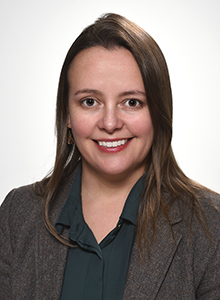
Selina Young
Selina is Métis from the Prairies and grew up in Caledonia, Ontario along the shores of the Grand River. She has lived in and around Toronto for over 40 years.
Selina is the Director of the Indigenous Affairs Office at the City of Toronto. She has over 25 years' experience in the public service, having worked for governments in Ontario, Canada and Scotland. Selina has undergraduate and graduate degrees in aquatic toxicology and environmental studies.
She is an active volunteer including roles with Katimavik, Park People, Peel Children’s Aid Society, Toronto Raptors, 880 Cities, Women4Climate and the Urban Land Institute.
Previous Members
Jamie Morin (2017 – 2020)
Alison Norman (2017 – 2021)
Jessica Tabak (2017 – 2022)
Jeremie Caribou (2021 – 2022)
Christine Miskonoodinkwe Smith (2017 – 2023)
Janine Manning (2020 – 2024)
Innovation Council
The Innovation Council is an advisory group of recognized leading individuals from the academic, creative, and technology communities. Meeting quarterly, council members provide the library with valuable feedback, ideas, and collaboration that help shape service development and increase the library's profile in the technology and innovation spheres.
Members
-

Eric Boyd
Founder, Sensebridge
Born and raised in Ontario, on a small chicken farm, Eric went to Queens University for engineering, graduating in 2003, but not before co-founding StumbleUpon. After graduating, he lived and worked in Silicon Valley at a high tech startup, designing and installing industrial sensors.
Eric is currently based in Toronto, where he is President of Hacklab.to, a technology community space. He is also the founder of Sensebridge, an electronic jewelry company, where he works on a variety of devices which are intended to augment the user, turning them into a cyborg. These devices include North Paw, a compass anklet that gives users a sense of direction, and Heart Spark, a heart-beat flashing pendant which broadcasts the wearer's emotions.
A man of diverse interests, his other hobbies include quantified self, DIYbio and guerrilla gardening.
-

Zahra Ebrahim
Zahra Ebrahim is the Co-Founder of Monumental. She is a public interest designer and strategist, and an established bridge builder across grassroots and institutional spaces. Her work has focused on community-led approaches to policy, infrastructure, and service design.
Prior to Monumental, she built and led Doblin Canada, Deloitte’s Human-Centred Design practice. In her early career, Zahra led one of Canada’s first social design studios, working with communities to co-design towards better social outcomes, leading some of Canada’s most ambitious participatory infrastructure and policy programs.
Zahra is currently an Urbanist-in-Residence at the University of Toronto’s School of Cities, and an Adjunct Professor at the Daniels School of Architecture . She has been recognized as a Next City Vanguard Civic Leader, Ascend Canada’s Mentor of the Year, one of WXN’s Top 100 Women in Canadian Business, and most recently recognized as one of the Urban Land Institute’s WLI Champions. Zahra is currently a Board member of the Toronto Arts Council, and the Board Chair for Park People.
-

Marcus A. Gordon
PhD Student in Digital Media, York University Adjunct Professor, OCAD University
As an artist and researcher, Marcus Gordon is an advocate for open source, digital literacy and creative coding, and promotes this in his research activities.
He is currently a PhD student in York University's Digital Media program and a VISTA Doctoral Trainee. Previously, Marcus managed OCAD University's Visual Analytics Lab, a lab space for visualization and analytics research, and was also a researcher with OCAD University's PHASE Lab, where he continues to learn and practice digital holography. Although he continues to contribute to the labs as Adjunct Professor, his focus is on his doctoral studies at York University as a computational arts student under the supervision of Dr. Mark-David Hosale of nd:StudioLab.
-
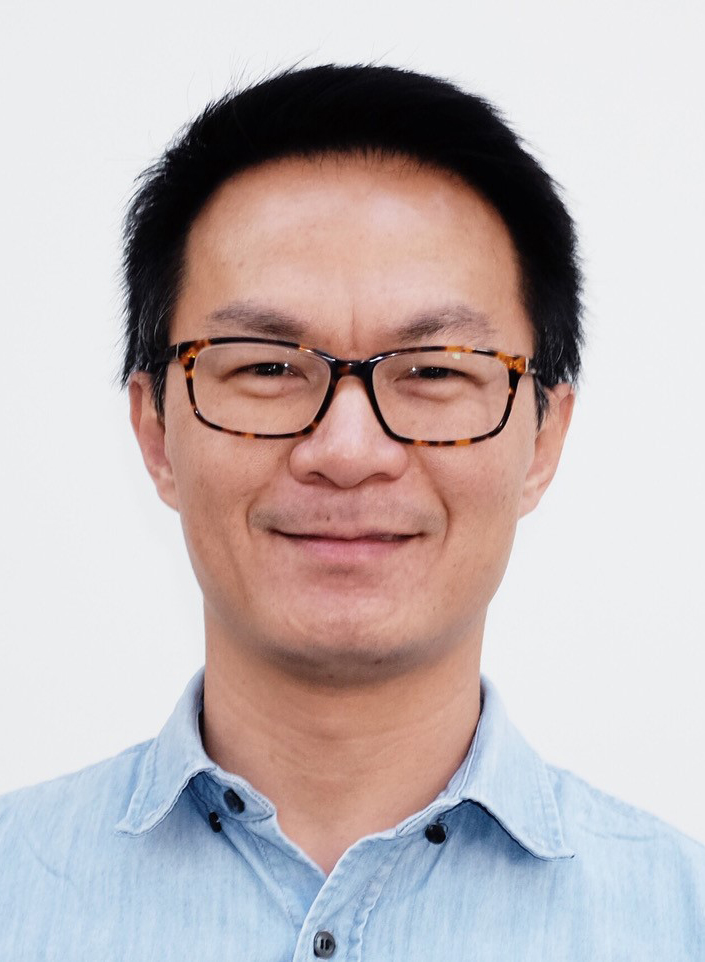
Tai Huynh
Tai Huynh is a designer and social innovator interested in creativity as the fuel for changemaking. Tai is Creative Director at OpenLab at the University Health Network, Canada's largest research hospital. He works with an inter-disciplinary team to come up with creative solutions to pressing issues at the intersection of health and society. Tai is the founding editor-in-chief of The Local, an award-winning magazine exploring urban health and social issues in Toronto, and co-founder of Choosing Wisely Canada. Tai has a Master of Design from OCAD University and MBA from York University.
-

Emily Evening
Chief of Staff, Flashfood
Emily currently serves as the Chief of Staff to the CEO of Flashfood, a certified B-Corp working to eliminate food waste and make healthy food available to all. Emily has spent the last decade in tech, mostly in Engineering departments helping tech workers love what they do. During this time she also served as the CEO, Board Chair, and Co-Founder of the successful education non-profit Bridge School, helping provide free advanced education to women and non-binary workers in tech.
Before entering the tech industry, Emily graduated from the University of Toronto with a Hons. BA in Art History and a Masters in Library and Information Science, and worked in both special and academic libraries. Today she is proud and thankful to be able to keep her connection to the amazing world of libraries by serving on the Innovation Council.
-

Pamela Robinson
Dr. Pamela Robinson MCIP RPP is the Director of the School of Urban and Regional Planning at Ryerson. Throughout her career as a planner her research and practice have focused on complex, emergent challenges that Canadian communities face. Her current research focuses on the question: who is planning the Canadian smart city? Since 2010, Pamela has written a regular column for Spacing Magazine where she writes about equity, technology and civic engagement in Canadian cities. Robinson is a member of the Toronto Public Library's Innovation Council and the Multi-Stakeholder Forum for the Government of Canada's Open Government Partnership work.
-

Jay Shaw
Jay Shaw is the Canada Research Chair in Responsible Health Innovation and an Assistant Professor at University of Toronto. Jay has appointments in the Department of Physical Therapy and the Institute of Health Policy, Management and Evaluation, and serves as Research Director of AI Ethics & Health at the Joint Centre for Bioethics.
He is also an adjunct Scientist at the Women’s College Hospital Institute for Health System Solutions and Virtual Care. He practiced as a physical therapist in community-based care prior to completing his PhD in 2012.
Jay’s program of research addresses the ethical and social implications of innovations in health care, with a special focus on innovative models of community-focused integrated care, digital health technologies, and applications of AI in health care.
-

Manal Siddiqui
Manal is an award-winning entrepreneur and AI governance expert with extensive experience in developing ethical and responsible technology solutions and synthetic media experiences co-created with AI. Currently a Fellow with the World Economic Forum's AI Governance Alliance, she has authored key reports on global AI regulations and governance frameworks. As Accenture’s Canada Lead for Responsible AI, Manal advises clients on AI governance and risk management practices.
As former co-founder and Chief Executive Officer of a Toronto-based startup, Manal led growth and innovation in AI-powered entertainment, securing investments and strategic IP. Prior to that, she operationalized Canada's national AI strategy and facilitated AI adoption in healthcare at the Vector Institute, one of the premier global AI research organizations and home to over 700 of Canada’s AI researchers.
Manal is the proud mother of two children who consider the Toronto Public Library their second home. Driven by their future, she champions the need for stronger capacity and resilience within our information and cultural ecosystems, ensuring they can adapt to the challenges posed by rapid technological advancements.
-

Alice Xu
Alice Xu has called Toronto home since immigrating to Canada as a teenager with her family. A proud public servant at the City of Toronto for over 20 years, Alice has led the Connected Community/Smart City program at the City of Toronto's Technology Services Division as Director, Digital City. The Connected Community team is committed to delivering broader quality of life value as a City through the use of data, technology and processes.
Alice led the creation of Toronto's City's Digital Infrastructure Strategic Framework, a comprehensive plan that also serves as an outward evaluation tool for external proposals with digital elements. She also led the work on ConnectTO, a program that includes the creation of a city-wide high-speed internet network that connects underserved areas with affordable internet access.
Alice is currently the Director of Policy, Planning, and Outreach in the City’s Environment and Climate Division. In this role, she is committed to sustainability, climate resilience, and climate justice.




